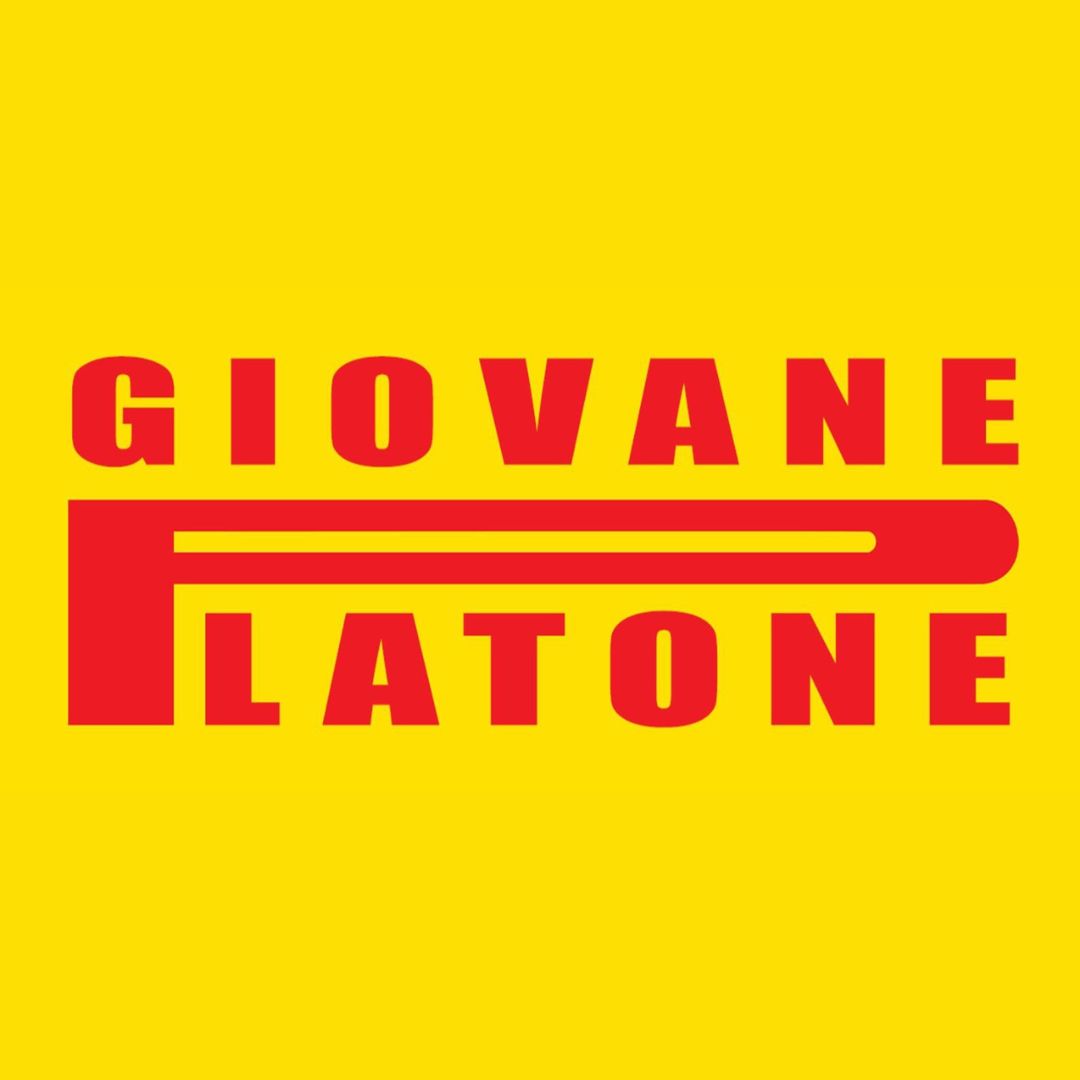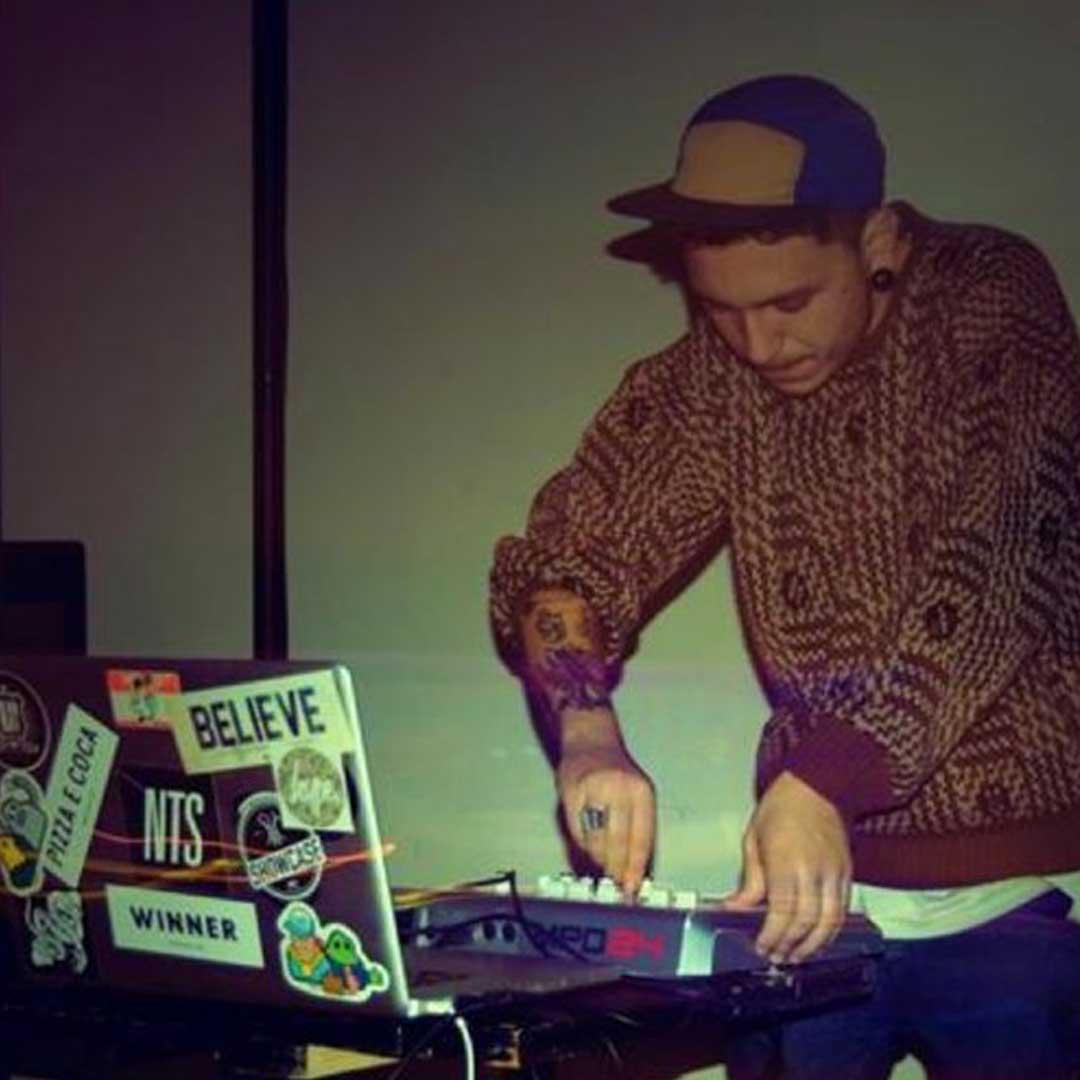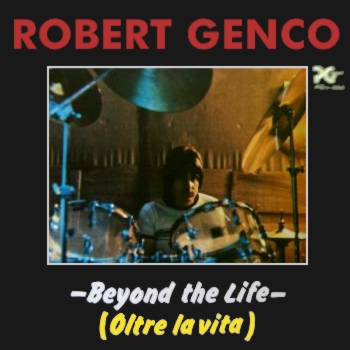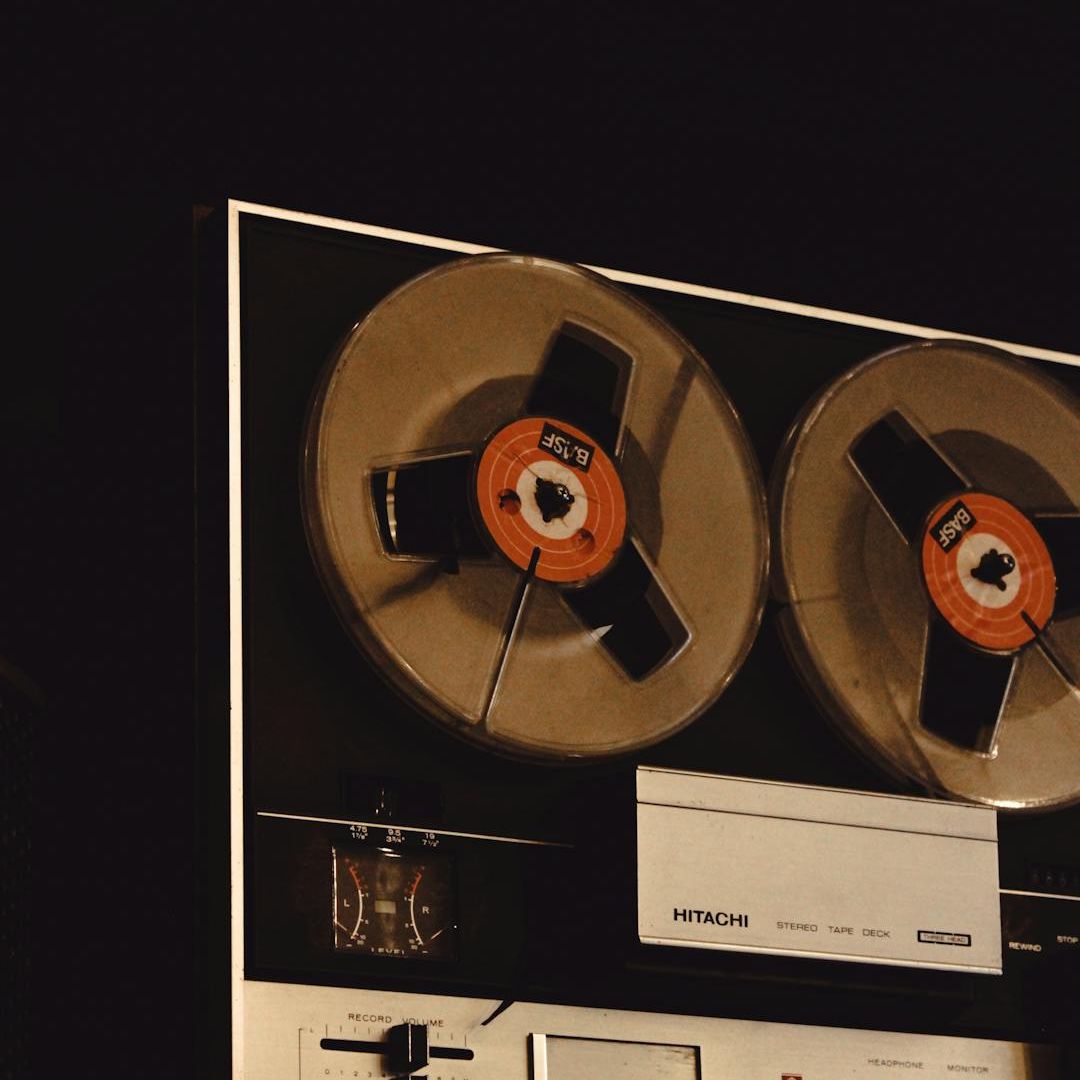Giovane Platone: the meaning of the name, plain and simple
In my personal top ten of the greatest Italian nicknames and street names of all time, Giovane Platone is unquestionably in the top three. You can’t tell me otherwise — one day we’ll reveal the full editorial list, but for now, that’s all you need to know.
The “young one,” balanced somewhere between Kant and Lil Wayne, is a rare breed of Italian hip-hop head: a figure who moves fluidly across music, sport, and lifestyle with the same ease he flips a sample.
A multitalented operator who brings both passion and precision into the rap game, the kind of artist you can’t ignore once you’ve crossed his frequency.
Born and raised in Monza to a Sicilian father and a mother from Lake Como, Giovane Platone aka Young Plato grew up in that half-industrial, half-romantic limbo that has shaped more than one restless creative.
His first steps into hip-hop came through graffiti crews; then came the beats — raw, sample-based, steeped in the culture. He’s since built a tight orbit around collaborators like Ciccio (pka Doye Tex), Lillo (pka Click Head), and a handful of Milan scene heads, earning respect also from the likes of Night Skinny and Dee-Mo.
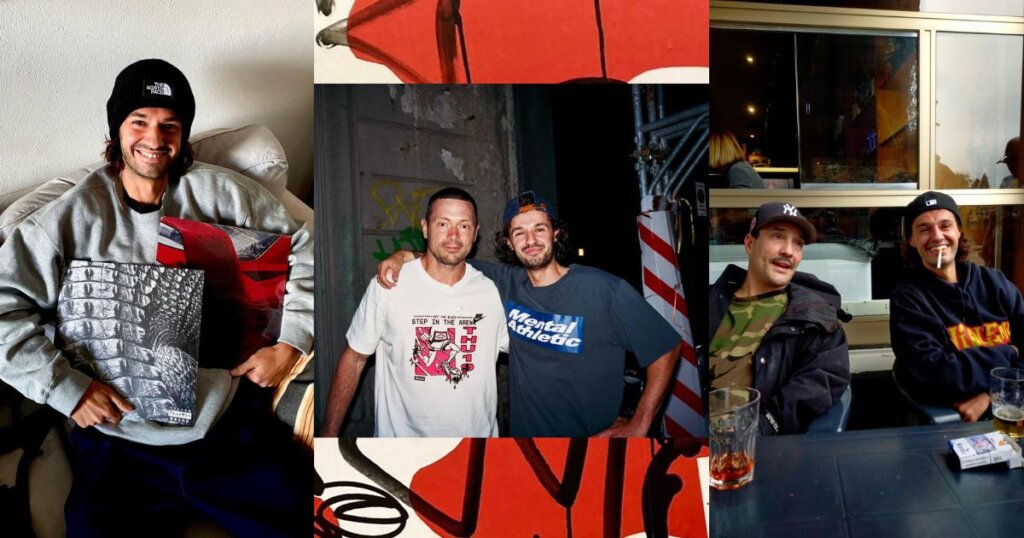
Before going all in on music, after uni, Plato did his time inside the corporate world — seven years as an account in distribution, learning the hard structure that would later help him run his own ship. Today, he’s left that behind, trading forecasts and spreadsheets for drum machines and long runs.
Because yes, Plato runs: a former track kid turned long-distance runner, all sweat and style. He even starred in a Nike spot, bridging performance and aesthetics with the same clarity he brings to the beat.
At the centre of it all sits his mantra: “Sport, Beats & Drugs Culture.” A life philosophy as much as a creative statement. His academic background in philosophy shows through, with a thesis on empiricism, a mind wired for logic and curiosity. For him, Kant defines how philosophy should be done, and in rap, Pusha T is the Kant of cadence: methodical, precise, flawless.
So when Training Day dropped — his latest release with mic partner Doye Tex — it felt like the right moment to call the philosopher-runner-producer-corporate-guy himself. To talk about inspirations, contradictions, and hip-hop not as a doctrine, but as a way of seeing the world.
Giovane Platone is a beautiful kind of mad — and like his ancient namesake, his ideas don’t stay theoretical for long. They move, run, and hit, turning thought into rhythm and rhythm into life.
We had a long conversation, and this is just a glimpse into the beautiful mind of Young Plato.
Enjoy the run.
Give me Giovane Platone in three words.
Sport. Beats. Droogs. (LOL). Nah, make it “culture”. That’s me. I live my passions hard—music, training, life itself. Everything I do is about rhythm and movement.
How did you enter hip-hop?
Through graffiti. All my friends painted. I tried, but I wasn’t that great, so I drifted toward beats. From day one, I made beats for rap, not for the algorithm.
I’m from Monza—dad Sicilian, mom from Lake Como. I grew up there, still live there. The first serious moment came with Ciccio. His rap group broke up around 2019–2020, and we locked in: WRC 86 EP, Leatherface 2, and everything that followed.
Then Lillo (Click Head) came in, the circle widened, and I understood what collaboration really means.
When did producing become real?
Late high school, early uni. I was half rave kid, half rap head. Learned Logic from a friend with a home studio, started sampling, then basslines, drums: a straightforward formula. Bought a used Akai MPC just to force myself to work it. If you drop €700 on gear and don’t make beats, you’re a clown.
You’ve got a corporate background too, right?
Yeah, seven years in multinationals doing account work. That grind taught me discipline and communication. It’s funny, those same skills make me a better independent artist today.
We’re that new breed: hip-hop heads who can survive inside the machine without becoming it.
Talk to me about the athletic side. You’re stretching as we talk (literally), and you train on a daily basis…
I ran track as a kid; my mom did too. Now I do long-distance. I’m competitive to the bone. But I also want to make running look good, stylish, cinematic, and real.
I even shot a Nike spot, thanks to Gabriele (Mental Athletic’s co-founder, note). That happened because I showed up, helped, and added value: same hustle everywhere.
How long until you made something that felt like “you”?
Years. I still look for validation from people I respect. When Night Skinny or Dee-Mo hits me up and says “fire”, that means something. We make niche music, but it’s for lifers. That’s the only audience I care about.
What shaped your ear?
Home was Prince, Michael Jackson, George Michael, Battisti, and Battiato. Then came 50 Cent, The Game, Lil’ Wayne—Wayne’s my all-time favourite. When I run, I listen deeply. I build playlists full of potential samples, then dig through them until something sparks.
Working with FatFat Corfunk changed everything. He knows exactly which record, which year, which player can give you that precise texture you have in mind. That’s musicianship as science.
You studied philosophy. Where does that connect to hip-hop?
In philosophy, Kant represents structure done right. In rap, that’s Pusha T—technically perfect, stylish, disciplined. Lil’ Wayne is my favourite overall; he can do anything. In Italy, Gué plays that balance—love songs, street talk, pop hooks, all tight.
For me, rap and philosophy overlap on one thing: form matters. You can say wild things, but if your form is off, it’s not art. It’s noise.
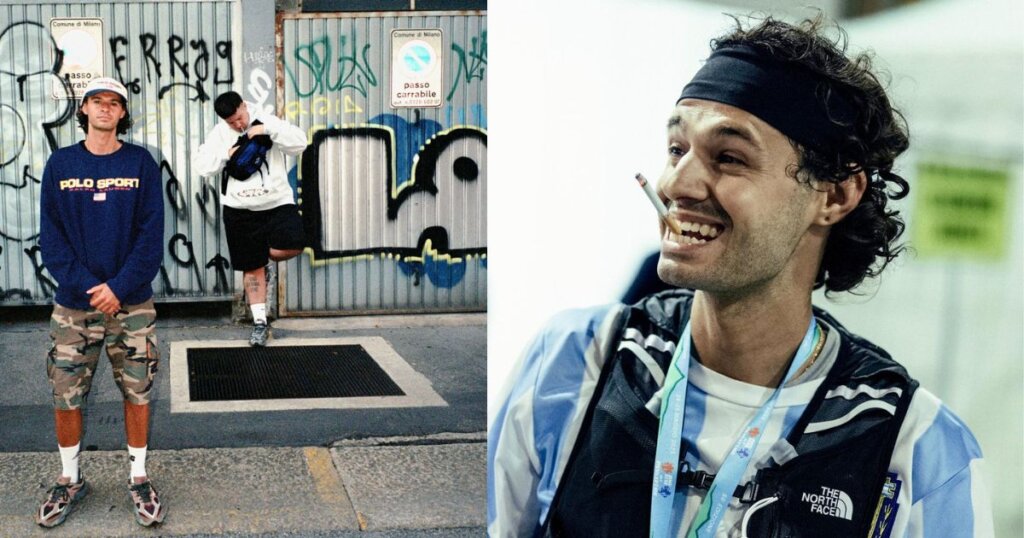
Let’s talk about narrative. You live between scenes: rap, sport, lifestyle. How do you manage what people perceive?
Positioning is everything today. I know I’m not getting rich from running races, but if I finish strong, smoke a cigarette, drink a beer, and post that, people go wild.
It’s real, but I also know how it plays. You have to control the narrative before it controls you.
My mom still tells me to be careful, and she’s right: the line between legend and clown is razor thin. The same goes for Lillo: he plays with his own street myth, but he knows the edge.
That’s what I mean by being clever, not fake. We’ve all bent reality a bit to make a story land—it’s part of the art.
I get it. The narrative is essential, but you’ve got to manage it consciously. You know how it works—comfortable on top, empty underneath.
Exactly. You just can’t get trapped in it. If you want to step out, you should be able to.
If you called me tomorrow to shoot a campaign where the real story isn’t the run itself but the after, the smoke, the beer, the sweat, I’d say yes in a heartbeat. That’s the truth behind the performance.
You’re basically saying the rap is the medium, not the goal.
100%. Rap is the vehicle. Everything connects: music leads to sport, sport leads to style, style leads back to music.
That’s how opportunities happen. Gabriele called me for an event because of rap; it turned into a collab because he found out I run. Same with the RRC deal: people connect the dots because they see a full picture, not just a sound.
So interdisciplinarity is the way forward?
Totally. For me, interdisciplinarity is survival. Lillo could make more from art direction or design than rap some days. We all juggle roles—producer, athlete, designer, curator—and that keeps us alive.
If you’re just a rapper or just a producer, you’re a collectable, not a creator. You burn fast. I’d rather expand than repeat.
About your name: will “Giovane Platone” stay forever?
A: (laughs) I get that a lot. “Giovane” can stay—it’s part of the DNA. Platone, though, is the anchor. Even if I age out, Plato stays.
It’s a killer name—top 3 in Italian hip-hop, easily.
A: (laughs) I’ll take that. Look, rebranding now would be suicide. All I need is to keep building awareness for the new kids and connections for those who already know.
You recently dropped a vinyl with RRC, right?
A: Yeah. They’re legendary —ex-Cuns, Rome roots, affiliates, with a heavy catalogue already. We’re the first new Italian act they’ve pressed since the Lord Bean reissue. Sales have been solid so far—limited runs, all collector’s editions. I’m not chasing streams; I’m chasing objects that last.
What’s next?
A: The Life of Plato. My producer album. Fifteen tracks, mixing rap and movement, art and energy. Every third track will be instrumental—a breath, a loop, a scene. I want to prove that the same discipline that makes you run 100 kilometres can build an album that still sounds hungry.
That’s StrettoBlaster energy right there.
Exactly—beats, pieces, wrong ideas. That’s how I live.
